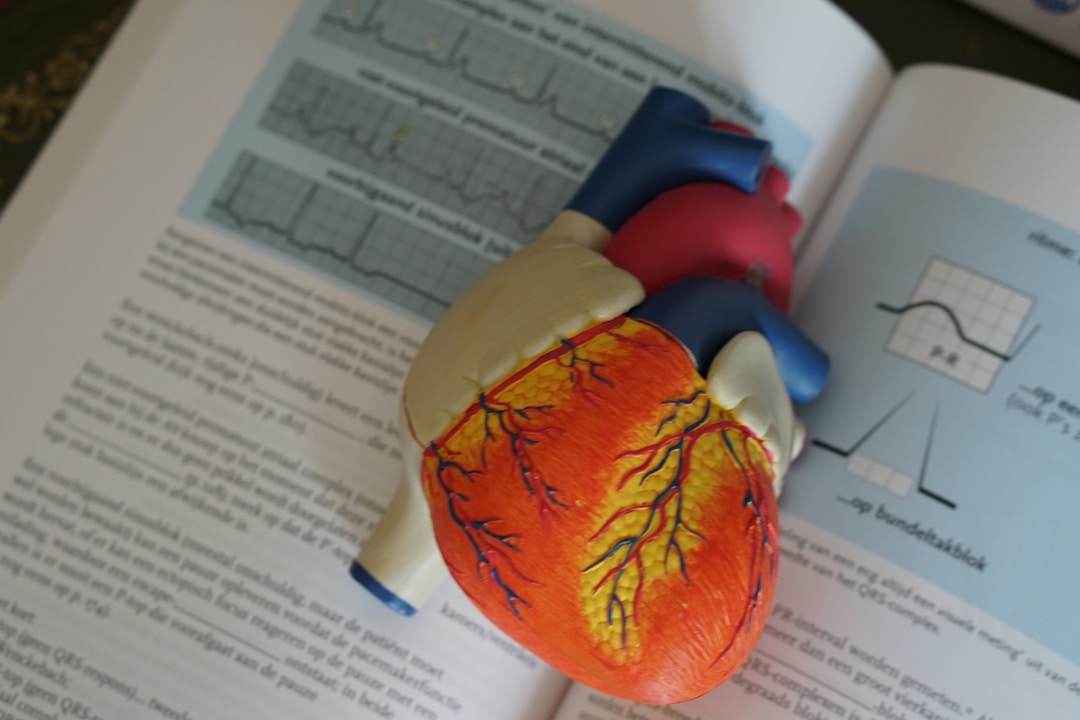Finding a good cardiologist is vital for maintaining a healthy cardiovascular system. Their expertise, access to advanced testing methods, and ability to communicate are all major factors in ensuring accurate diagnoses and treatment plans. By finding the right cardiologist, you are taking a proactive step toward protecting your heart and overall well-being. Still, many people don’t know where to start when they need a heart doctor. In this article, we’ll delve into how you can find the right cardiologist and the significance of this decision in your healthcare journey. If you’re in need of advice, keep reading!
Identifying Your Cardiac Health Needs

The first step in determining how to find a good cardiologist is identifying your unique heart health needs. There are various types of cardiac issues – from congenital heart conditions to acquired heart diseases. You might need a cardiovascular specialist because you have a family history of heart disease, or you may have been referred by your primary care doctor based on symptoms or tests. You may also be seeking a preventive cardiologist to help you offset your risk of heart disease based on lifestyle factors. Knowing what you need from a cardiologist will narrow down your search.
Essentially, understanding your specific cardiac need or disease is crucial in determining the sort of cardiologist that would be the most beneficial for your healthcare. For instance, an interventional cardiologist specializes in catheter-based treatment of heart diseases, while an electrophysiologist focuses on diagnosing and treating conditions related to heart rhythms. Gaining clarity on your health needs is a responsibility you cannot afford to shirk as you navigate the process of selecting a cardiologist.
If you’re unsure about your exact needs, your primary care doctor can guide you. They can also provide referrals to cardiologists who specialize in the area of your health needs. Regardless of your situation, the key is to find a cardiologist who meets your individual health requirements.
Checking the Cardiologist’s Credentials
After recognizing your heart health needs, the next step is to check the credentials of potential cardiologists. Make sure the cardiologist has board certification, which is proof that the doctor has the training, experience, and skills to provide cardiologic healthcare. You can usually find this information on the cardiologist’s website or on online medical databases. In addition to their certifications, you should also look into whether the cardiologist has any history of malpractice claims or disciplinary actions. Such information is typically public and can often be found online.
Their academic background and contributions to their field, such as research or publications, are also aspects worth considering. Credentials alone aren’t everything, but they are certainly a vital aspect of determining whether a cardiologist is properly qualified. Certifications alongside an impressive track record can provide assurance that you’re working with a top cardiologist.
Evaluating Communication Style and Personality Fit

Besides professional qualifications, you should also take into account how the cardiologist interacts with you. The best cardiologist is not only capable in their field but also makes you feel comfortable, listens to your concerns, and explains things in a way you can understand. An open line of communication should exist between you and your cardiologist. If you cannot speak openly or feel like your concerns are not being addressed, it might be a sign that it’s not the right fit.
You should also consider if their approach to treatment aligns with your own. Some doctors may favor aggressive treatment options, while others may lean towards a conservative approach. A conversation about their typical approach can give you an idea of what to expect. Note that a good rapport with your cardiologist can contribute to better health outcomes. Therefore, the comfort level with the doctor and the standards of care provided should be prioritized right up there with qualifications and expertise.
Considering Health Insurance and Hospital Quality
Health insurance coverage is a practical factor to consider when choosing a cardiologist. Choose a cardiologist who participates in your health plan, so you can benefit from the highest insurance benefits and pay the least out-of-pocket costs. However, you shouldn’t compromise quality care just to stay inside your health plan. Also, consider the quality of the hospital where the cardiologist can treat patients.
Hospital quality matters since patients at top-rated hospitals have better survival rates and fewer complications. Moreover, consider the location of the hospital. Regular check-ups and should an emergency arise, a conveniently located hospital can contribute substantially to timely care. The takeaway here is, that while your health remains a priority, you must not overlook the practical factors such as insurance coverage and hospital quality.
Reading Patient Reviews

Patient reviews offer a glimpse into the doctor-patient relationship. They can shed light on the doctor’s bedside manner, their ability to communicate effectively, and their level of empathy towards their patients. These aspects are particularly valuable when it comes to cardiologists, as heart conditions require ongoing care and close collaboration between doctor and patient. By reading patient reviews, you can gain a better understanding of how a cardiologist interacts with their patients, which can make you feel more comfortable and confident in your choice.
Beyond that, patient reviews can give you insight into a cardiologist’s level of expertise. Reviews often touch on the doctor’s qualifications, their experience in treating various heart conditions, and the results patients have achieved under their care. This can enable you to assess whether the cardiologist has the skills and knowledge to handle your specific case. You need to find a cardiologist who specializes in the area you need, whether it’s arrhythmias, heart failure, or coronary artery disease. By reading patient reviews, you can gather information about the cardiologist’s expertise and determine if they are the right fit for your healthcare needs.
Keeping a Proactive Approach

Finding a good cardiologist is not a one-time effort. It should involve ongoing evaluations and adjustments as necessary. Should your medical condition, health needs, or goals change, your choice of cardiovascular specialist should be capable of evolving with them.
Furthermore, as you continue to interact with and seek treatment from the selected cardiologist, you may gather more information and gain a deeper understanding of whether the partnership is beneficial. By staying proactive, you won’t feel locked into your choice and can adjust your course when you need to.
Being proactive also involves being informed about your own health status. Educate yourself about heart disease risk factors and symptoms, so that you can recognize potential warning signs. Regularly monitor your blood pressure, and cholesterol levels, and engage in heart-healthy lifestyle habits like exercising and maintaining a balanced diet. By taking control of your own heart health, you are better prepared to partner with your cardiologist in making informed decisions about your care and treatment options.
In conclusion, while the process may seem daunting, remember that putting in the time and effort to find a cardiologist who is the right fit for you can significantly impact your heart health in the long run. However, the most important part is to be actively engaged in your care, being aware of every aspect, and asking the right questions. Involvement in your healthcare journey is an indispensable factor in maintaining heart health and increasing the quality of your life.




